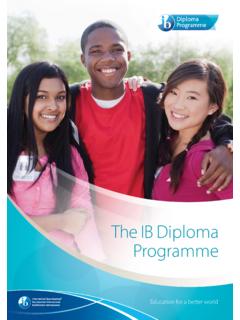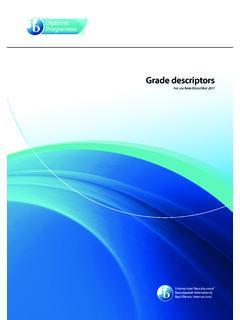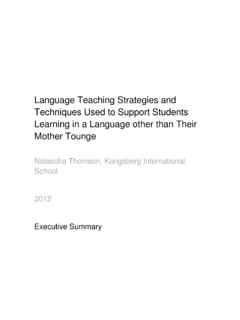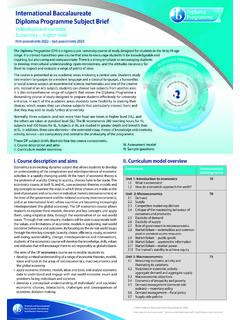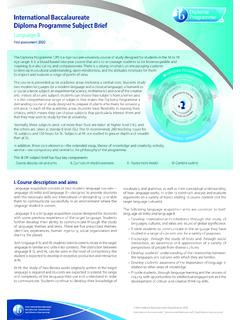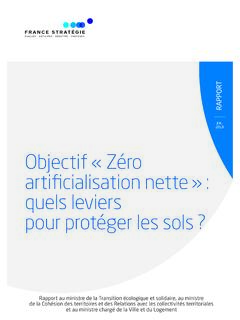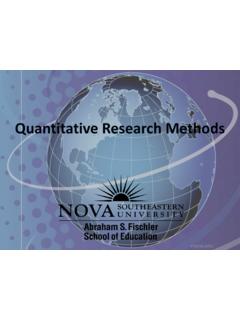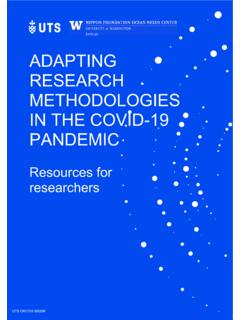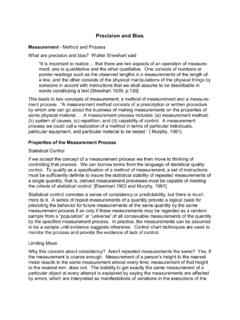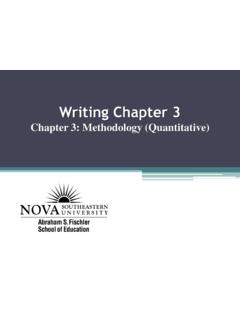Transcription of Different countries, different approaches to teaching and ...
1 Different countries , Different approaches to teaching and learning? Nicky Dulfer, Amy McKernan & Kimberley Brindle 1 Authors Dr Nicky Dulfer Nicky Dulfer is a Senior Lecturer at the Graduate School of Education, University of Melbourne who has a decade s experience undertaking research within the field of education. Her past research projects include both quantitative and qualitative studies which connect to three key themes. The first theme, post-compulsory educational provision has included research investigating high stakes assessment, post-compulsory educational provision, school based apprenticeships and careers education.
2 The second theme of equity has involved research in low and high socio-economic classrooms looking at retention and engagement strategies, funding models and equity practices. The final strand of Nicky s research focuses on pedagogy, and has comprised examining pedagogical practices, teacher efficacy, differentiation, engagement and retention in a range of secondary schools. Dr Kimberley Brindle Kimberley Brindle is a researcher of the Graduate School of Education at the University of Melbourne. Kimberley has a background and interest in topics relating to educational and developmental psychology. Kimberley has experience in fields such as education, engagement in antisocial and risk-taking behaviours, emotional regulation, psychological distress, autism, student retention, literacy and Indigenous Australians and will continue to develop her expertise in these areas of interest through ongoing research involvement and the production of publications.
3 Dr Amy McKernan Amy McKernan is lecturer at the Graduate School of Education at the University of Melbourne. She is a qualified history and EAL teacher whose research focuses on history learning and inclusive education. Her doctoral research examined the ways museums represent difficult histories, and how the representation of these contentious and confronting topics and events supports learning. More broadly, Amy is interested in issues of equity and access in diverse educational settings, and in the creation of inclusive classrooms for students with varied needs and experiences. 2 Contents 1 Introduction .. 5 Rationale.
4 5 Purpose .. 7 Background .. 7 The Research Questions .. 10 2 Methodology .. 10 Overview .. 10 Sample .. 12 Instruments .. 13 The Survey .. 13 The Observation Instrument .. 13 The Teacher Interview .. 14 Analysis .. 14 Limitations & Significance .. 15 3 How do Teachers Differentiate? .. 16 Content .. 16 Learning Goals .. 16 Access .. 17 Presentation .. 18 Process .. 19 Structure of Learning .. 20 Teacher Pacing .. 20 Feedback .. 21 Individual responses .. 23 Self-reflection .. 23 Student Instruction .. 24 Communication .. 25 Grouping .. 25 Product .. 26 Task sophistication .. 27 Student Choice.
5 27 Student pacing .. 28 29 3 Supports learning .. 29 Safe and Inclusive .. 30 Flexible spaces .. 31 4 Discussion .. 33 Adaptation to local/global context .. 36 What are the opportunities and challenges of differentiation? .. 39 5 Recommendations .. 43 6 References .. 44 Appendix 1: Teacher online survey instrument .. 48 Appendix 2: Lesson observation instrument .. 0 Appendix 3: Teacher Interview (semi-structured) instrument .. 0 Figures Figure 1: Observable evidence sources .. 11 Figure 2: Observation Instrument categories .. 14 Figure 3: Feedback importance (survey).. 22 Figure 4: Student instruction importance (survey).
6 24 Figure 5: Environment factors external (observation) .. 29 Figure 6: Environmental factors within teacher scope (observation) .. 30 Figure 7: Student attribute environment importance (survey) .. 31 Figure 8: Environment importance (survey) .. 31 Tables Table 1: approaches to Differentiation (ATL) (IBO, p21) .. 7 Table 2: Comparison of differentiation, UDL and ATL frameworks .. 10 Table 3: School demographics .. 12 Table 4: Teacher demographics .. 12 Vignettes Vignette 1: Learning Goals .. 17 Vignette 2: Problematising content .. 19 4 Vignette 3: Structure of Learning .. 20 Vignette 4: Feedback .. 23 Vignette 5: Product differentiation.
7 26 Vignette 6: Student Choice .. 27 Vignette 7: Student 29 Vignette 8: Flexible learning environments .. 32 List of Abbreviations ATL .. approaches to teaching and Learning CAST .. Center for Applied Special Technology FOA .. Further Oral Activity HL .. Higher Level (IBDP) IB .. International Baccalaureate IBDP .. International Baccalaureate (Diploma Programme) IBO .. International Baccalaureate Organisation IOC .. Individual Oral Commentary SES .. Socioeconomic status SL ..Standard Level (IBDP) SPSS .. Statistical Package for the Social Sciences UD ..Universal Design UDL .. Universal Design for Learning 5 1 Introduction Different countries , Different approaches to teaching and learning sought to investigate the ways teachers in International Baccalaureate Diploma Programme [IBDP] classrooms used differentiation to support student learning.
8 Targeting teaching and learning to diverse groups of students is often challenging for teachers, and the project also sought to identify barriers to differentiation as well as factors that made it easier for teachers to structure lessons and assessments to suit differing student needs. Crucially, the findings of this research highlight a range of promising pedagogies in the IBDP subjects, with teachers demonstrating creative and thoughtful approaches to supporting the learning of students in their classes. The teachers who participated in this research also often expressed or demonstrated confusion about what constituted differentiation in the IBDP, indicating a need for more professional learning in this space.
9 This report summarises the research methodology and approach, details the key findings of the project, and provides recommendations for the strengthening of differentiated teaching in IBDP classrooms. In addition, a range of examples of practice observed by the researchers are described in promising pedagogy vignettes throughout the report; these illustrate that even with significant challenges in implementing differentiation, teachers found ways to support diverse groups of students in the contexts they worked in. Rationale Despite the universal provision of primary and secondary schooling in modern OECD nations and the rapid growth in participation which has accompanied this, inequality has continued to characterise many aspects of educational outcomes.
10 In the field of educational sociology, these inequalities have been attributed to a range of sociological constructs such as society, family, and race. Educational psychology, on the other hand, has focussed more on what can be achieved in the cognitive arena, and more specifically in the classroom. Within this body of research, quality pedagogy has been identified as one possible way of ameliorating these unequal outcomes. However, quality pedagogy has been difficult to define, in part due to the wide-ranging needs of students. Notwithstanding the difficulties of defining quality pedagogy, there has been one concept that has continually been identified as supporting students with differing learning needs, interests, abilities and levels of readiness.
